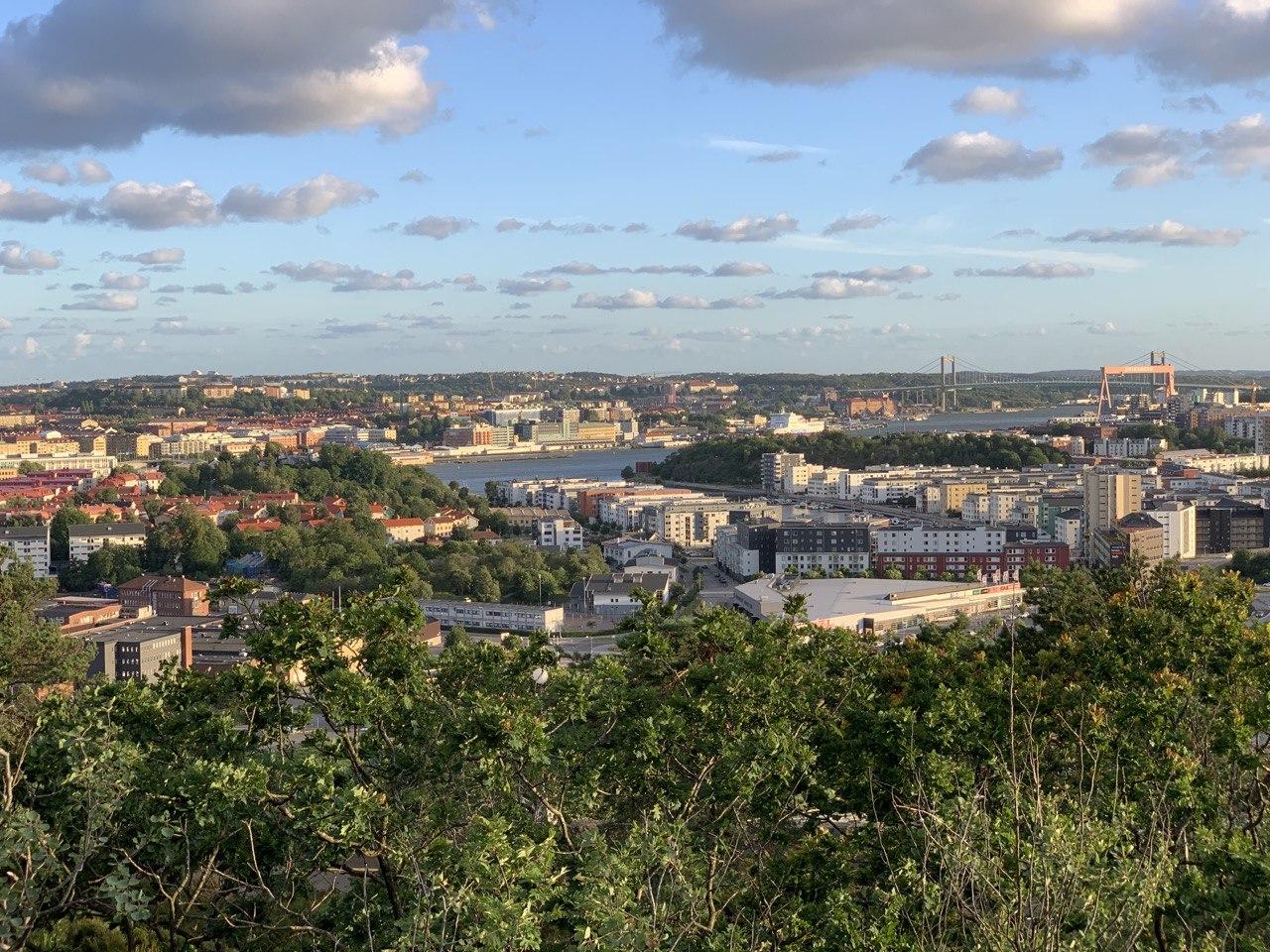Tenday Notes 30 June - 9 July

Every ten days I share a quick digest of what I've been working on. Here's the latest. You can find more in the series here.
Today I went to the hospital for the first time in my eight years in Sweden. I went early - arriving about 9.30am and after passing a barrage of questions at the entrance about my sense of smell and whether I had (was?) a pain in the neck then I was allowed into the Accident & Emergency waiting room.
(If you missed the last instalment of my newsletter, I had a bike crash. Most of the pain and scratches are gone, but I still can’t lift my left arm so my doctor sent me to the hospital.)
In classic Swedish style I was asked to take a number, and was called within five minutes. The nurse logged all my details, a doctor saw me within another ten minutes (after I filled out a road accident statistics form) and I was on my way to an x-ray within about 30 minutes.
Things slowed down a bit here and I waited a couple of hours until the x-ray and then another hour until I was called to see the doctor again, who didn’t show up for another 20 minutes.
When he did he gave me some good news - no fracture. Instead the next step is to do an MRI scan that’ll diagnose whether I have a partial or total tear in the supraspinatus muscle. If it’s partial then the solution is physiotherapy. It’ll heal by itself. If it’s total then it’ll be surgery. I’ll have that MRI scan in the next couple of weeks.
So far, I have only paid 100kr - about $10 - for the initial doctors appointment, and nothing for the hospital visit. Obviously I pay for it in my taxes, but it’s wonderful that I can access these services without further payment and I count myself tremendously lucky to live in a country where that’s the case.
Every so often I see something that reminds me that the process of travel was fundamentally different a relatively short time ago. For example, when someone in my family mentions casually that my dad, uncle and older sister, in the 1970s, once drove from the UK to Jeddah in Saudi Arabia - right through Europe, Turkey, Syria. That idea would be unthinkable today.
I was reminded of this just now by a tweet I saw about a London to Calcutta bus route that continued well into the 1970s. Forty-eight days, via Vienna, Istanbul, Tehran, Kabul, and Lahore. A ticket could be yours for £145, or £290 if you wanted to continue to Australia(!) by plane and boat.
These overland routes do still exist in some forms, despite us living in the age of cheap* airfares - as evidenced by the BBC show Race Across The World that my sister clued me into earlier this year. It's a simple setup - teams of two people have to get from one place to another without mobile phones or flying, checking in at various locations en route. There are a lot of 48-hour bus rides through deserts, but it's fascinating seeing both the places and how possible it is to make these journeys.
Which makes me doubly sad that today it's so difficult to travel between the UK and Sweden without flying. The last ferry link between the UK and Scandinavia - the crossing between Harwich-Esbjerg - was discontinued in 2014. It wasn't too long before that that ferries went directly from Gothenburg to the UK, from a pier about five minutes walk from where I now live.
To briefly digress with a fun fact, this is the same route that rock and roll took into Sweden in the 50s and 60s. Swedish DJs would spend their weeks in Manchester and Liverpool record stores, then take the ferry back on the weekends where they'd play their new acquisitions. Without that connection, perhaps Sweden wouldn't be so utterly dominant in modern pop music?
Either way, the shortest ground-based GBG > UK route today involves a train down to Denmark, into Germany, then to Holland, and then a ferry from Hoek van Holland to Harwich, then a train from Harwich to wherever in the UK. Not very practical. I can only hope that one day the ferry route will reopen, and people can rediscover the joys of travelling without flying.
* If you don't factor in the externalities...
It was my birthday yesterday! 36, in case you're wondering, which will make some of you feel old and some of you feel young. Me? I feel about right. I'm enjoying my thirties. Though I did stop a moment and think yesterday about all the madness that's gone down since I turned 30 in 2014.
I got a lot of books - the (huge!) Infographic History of the World, Mollie Bang's Picture This, Shane O'Mara's In Praise of Walking, Deirdre Mask's The Address Book, Austin Kleon's Keep Going and Rutger Bregman's Humankind. All non-fiction! So I used a book voucher I received from my brother to add Pratchett's A Hat Full of Sky and Ursula K Le Guin's The Dispossessed to the pile, as well as some Steven Universe comics and The Atlas of Unusual Borders. That lot should keep me going for a while.
The other big theme in my gifts was pens for the plotter - a beautiful TWSBY Eco fountain pen with a set of inks, and a huge pile of miscellaneous gel pens and fineliners that I can't wait to try out on various plots. Now I just need to find some time to make a few more things to plot!
I have a personal rule that I never work on my birthday, which I mostly kept (I did a little admin for my accountant). So it was a pretty gentle day of disassembling and reassembling (with the help of a YouTube video) my new fountain pen, making a few simple plots with the Axidraw, reading, watching some Halt and Catch Fire (I'm just coming up to the end of season one... I hope it gets a little less stressful?), and eating good food.
My wonderful cousin Osian messaged me: "Have the 2nd most wonderful birthday ever, Duncan, so you still have the most wonderful birthday to look forward to!" I hope I achieved that.
A while back I made a vector version of the ideal city of Sforzinda, and plotted it. I spent some time this weekend making a generative version instead.
I’m really enjoying digging into the history of people’s ideas of “ideal cities” through the ages. It seems like someone comes up with a new plan every generation. They rarely deliver on their promise of being “ideal”, but they take us forward. I like this model of progress - aiming for perfection and falling short, but moving forward at a more-than-incremental pace nonetheless. It’s something to be said for utopian thinking in an age where dystopian thinking couldn’t be more common.
Anyway, the generative version can be found here. It’s pretty bare-bones - the city has a wall, gates, radial roads, a church and two markets. Refresh to get a new one.
It’s not quite as varied as I would like, but perhaps I can fix that with a little more development. I’d like to add a random element to the size of the city and the positions of the church and markets. I’d also like to add a generative cathedral to the centre of the city, as in the original plans.
I’d also like to make more generative ideal cities - Vasari, the Oglethorpe plan, a Garden City, maybe something with Thamesmead. Hopefully I’ll be able to find some non-Western examples too. If you know of any examples of “ideal cities” from history then I’d love to hear about them! Hit reply to this email and spill the beans.
I finished reading Austin Kleon’s “Keep Going” and wow. It’s really good. It’s basically a manual for continuing to be creative in a world that’s infinitely distracting and depressing.
One bit that floored me on my first read is where he points out that our default reaction to seeing somebody make something amazing is to tell them to sell it. He writes:
We’re now trained to heap praise on our loved ones by using market terminology. The minute anybody shows any talent for anything, we suggest they turn it into a profession. This is our best compliment: telling somebody they’re so good at what they love to do they could make money at it.
Reading that was like a gut punch. I do this all the time, and from now on I’m going to try to actively avoid it.
He goes on to give some fantastic advice for creative freelancers:
“One of the easiest ways to hate something that you love is to turn it into your job. Be mindful of what potential impact monetising your passions could have on your life. When you start making a living from your work, resist the urge to monetise every single bit of your creative practice. Be sure that there’s at least a tiny part of you that’s off-limits to the marketplace some little piece that you keep for yourself.”
Sometimes I need to transcribe things for work, and it used to be a total pain. It takes me four times as long to transcribe something as it does to record it, which led to me making interviews artificially short because I didn't want to spend hours transcribing.
After a while, I figured instead that it would be best to just pay someone else to do it - so now I use a transcription service called Rev. It's $1.25 a minute, which is way cheaper than it would cost my clients if I was doing it, so it's usually very easy to get them to pay for the transcription costs. They're quick too - I can send files at the end of my day, and when I wake up in the morning they're transcribed and ready to go.
My plan tomorrow: write up three massive interviews I did today that I'm getting transcribed overnight.
I'm not totally sure if I love this article or hate it, but I'm sharing it so you can make your own mind up. Ribbon Farm's "The Internet of Beefs" (published back in January, but I only just got around to reading it) sketches out the structure and mechanics of the unending culture wars that now take up the majority of spacetime on social media.
It's an interesting way of framing the situation, if rather overwritten. Some of the jargon will undoubtedly hinder, rather than help, understanding for those of you who don't spend a lot of time on Twitter (and probably some of you who do). It certainly reinforced my personal rules for engagement on social media - which basically boil down to "if you don't have anything nice to say then don't say anything".
I dunno. Some people love a good "hate-read", and seem to draw energy from unending Twitter conflict. I find it sucks the energy right out of me, and deploy a lengthy, ever-changing list of mute words to handle the outrage-of-the-hour. With those defences in place, I've managed to wrestle my Twitter feed into a surprisingly uplifting and inspiring place that I get a lot out of. But only as a "break" from work, because it's still too easy to get sucked in.
Via Robin Sloan's newsletter, a thirteenth-century Syrian machine for performing Islamic geomancy. I don't think I need to add anything to that.
My annual Adobe Creative Cloud membership is up for renewal soon, and I'm thinking about cancelling it. It's so expensive, and the software is very meh in most cases. The only things I use on a regular basis are Photoshop (for basic image editing, could easily be done in something else), Premiere Rush (for making simple social media videos), Lightroom (though I'm not photographing so much these days and when I do I just use the Apple photo stream), and the amazing font library. Occasionally a client needs me to open an Illustrator file, too.
Have any of you successfully gotten out of Adobe's clutches on this front? How did you do it? Were you successful? I'd also love to hear recommendations on your favourite alternatives to the software above!
Finally, back in 2017, I wrote an article for BBC Focus about how human extinction might change the Earth. Here's a small chunk:
There are about 450 nuclear reactors around the world that will start to melt down as soon as the fuel runs out in the emergency generators that supply them with coolant. There's no way of knowing how such an enormous, abrupt release of radioactive material into the atmosphere will affect the planet's ecosystems. And that's before we start to consider other sources of pollution. The decades immediately following human extinction will be pockmarked by devastating oil spills, chemical leaks and explosions of varying sizes - ticking time bombs that we've left behind.
They've just put it online, though they've added a bunch of extraneous links and weird paragraphing. I recommend reading the original version I filed instead (please don't share that link widely, it's just for you blog-following folks).
It's always interesting to re-read your own work a few years later. There are a handful of things I would do differently if I was writing it today. But actually my main feelings on re-reading it were "wow, this is actually really good". Maybe I should re-visit some of my older work more often?
[Ninja edit: They've also published a version in Spanish on the main BBC website!]
To that end, I'm going to try and surface more of my archive in the coming months.

